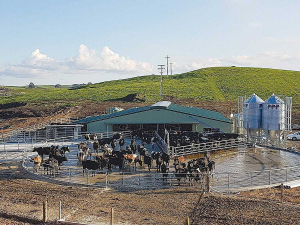Farmers must assess the milk cooling systems on a regular basis to ensure it meets requirements set out by the Ministry of Primary Industries (MPI).
It says dairy operators must have records to confirm that milk cooling requirements are being met to confirm the capability of milk cooling equipment.
“Milk cooling performance should be monitored monthly, but as a minimum must be monitored and recorded about the time of expected peak milk production and in February,” it says.
Each performance check must cover at least two consecutive milkings, and the records must include the temperature of milk in each bulk milk tank immediately prior to the start of milking.
The time milking starts and ends, temperature of milk in the bulk milk tank at the completion of milking and the time that the milk is confirmed to meet the requirements of new milking regulations must also be recorded.
MPI says temperature measurements and recording can be accomplished using any of the following: electronic monitoring system, a chart recorder, a “tiny tag” or similar temperature logging device, manual measurements using an electronic thermometer or any other equivalent method.
The accuracy of the temperature measurement device must be known as the data collected is an official record, it says.
Action must be taken to correct milk cooling performance should the information collected show that milk is not being cooled within the required parameters.
In such cases the milk cooling performance checks described above must be repeated to confirm compliance with the milk cooling requirements.
Milk that has not been cooled in accordance with milk cooling regulations must be withheld from supply, unless the milk has been assessed and confirmed as fit for intended purpose by the dairy company.
Disposal of milk
There must be a procedure in place for the disposal of milk, says MPI.
For a variety of reasons processors may not always be able to collect milk.
Farmers can face prosecution, under the Resource Management Act 1991, if they discharge milk directly into water or if they allow milk to flow into water.
“Milk is a potent pollutant, being 1000 times more potent than farm dairy effluent. As such, intrusion into waterways will have a serious impact.”
Farmers should check with their regional authority before disposing of milk onto land.


















